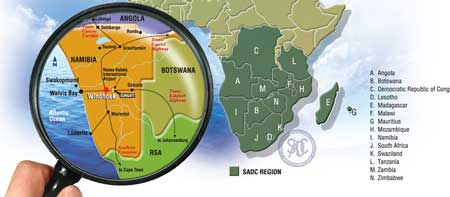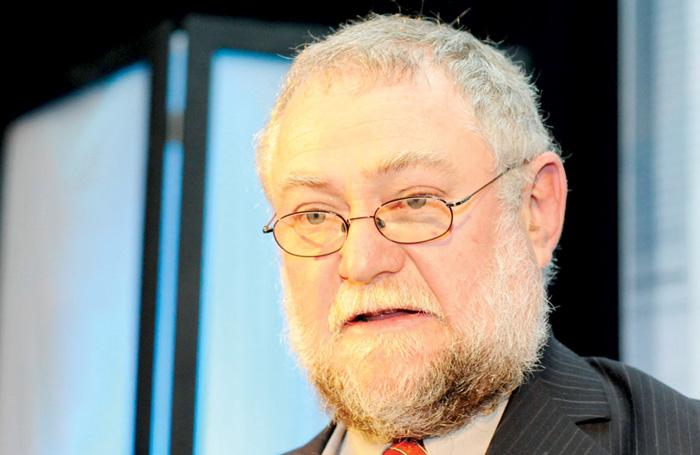
SADC seized with regional security situation

By Kizito Sikuka
SADC remains seized with the political and security situation prevailing in the region and stands ready to support any of its Member States to find lasting solutions to challenges threatening peace and stability in the region.
This was said by the Southern African Development Community (SADC) Troika on Politics, Defence and Security Cooperation which met 19 May in Harare, Zimbabwe to discuss the security situation in northern Mozambique.
The northernmost part of Mozambique, particularly in the Cabo Delgado Province is under serious threat from some acts of extremism and terrorism, which have left more than 400 people dead and almost 100,000 people displaced.
In a communique released soon after the Extraordinary Organ Troika Summit plus Mozambique meeting, the region “strongly condemned the armed attacks and acts of sabotage perpetrated by the terrorists and armed groups in some districts of Cabo Delgado Province.”
Various groups including those with Islamic fundamentalism, especially a group known as Ahlu Sunna Wa-Jama have claimed responsibility for some of the attacks.
“The Extraordinary Organ Troika Summit plus Mozambique committed and urged SADC Member States to support the Government of Mozambique in fighting against the terrorists and armed groups in some districts of Cabo Delgado,” reads part of the communique.
Chairperson of the SADC Organ, President Emmerson Mnangagwa of Zimbabwe said a united region is better placed to combat any instability in the region.
“It is imperative that we once more stand shoulder to shoulder and confront this and other challenges we may face working together in unity,” President Mnangagwa said in his opening address.
“Successfully preventing and combating terrorism requires renewed and firm commitment from all SADC Member States.”
Regional collaboration to address and manage any conflicts in SADC is critical since peace and stability are a key conduit for sustainable development and regional integration.
On the political situation in the Kingdom of Lesotho, the Extraordinary Organ Troika Summit plus Mozambique “called for the peaceful transfer of power in line with the provisions of the Constitution” of the country.
This follows the resignation of Thomas Thabane as the Prime Minister of Lesotho on 19 May.
Thabane, who first served as Prime Minister between 2012 and February 2015, as well as from June 2017 to May 2020 was facing pressure to step down over a case in which he and his current wife are accused of involvement in the 2017 murder of his previous wife.
Thabane and his wife both deny the allegations.
Lesotho has a bicameral Parliament consisting of a Senate with 33 seats and a National Assembly with 120 seats, and as per the Constitution, a winning party should attain at least 61 seats to form a government.
However, if no party attains the required 61 seats, coalitions can be formed to set up a government.
The All Basotho Convention (ABC), which formed a coalition government with the Alliance of Democrats, Basotho National Party and the Reformed Congress of Lesotho after the last elections in 2017 has nominated Finance Minister, Moeketsi Rapapa to replace Thabane.
With regard to the presidential elections rerun in Malawi, SADC “took note of the Supreme Court of Malawi’s decision” to nullify the May 2019 Presidential elections.
This was after the Constitutional Court of Malawi had ordered the electoral commission to organise fresh presidential elections before July citing widespread irregularities in the conduct of the 21 May 2019 elections.
In the Malawian justice system, the Constitutional Court is not the top court of final judgement, as there is a Supreme Court of Appeal, and a submission of an appeal to a higher court suspends the judgement pending the outcome of the appeal.
Incumbent President Peter Mutharika had made an appeal against the court judgement.
However, on 8 May the Supreme Court affirmed the decision of the Constitutional Court to nullify the May 2019 presidential elections, paving way for a presidential rerun on 2 July.
President Peter Mutharika had emerged victorious in the 2019 poll, garnering 38.57 percent of votes cast compared to 35.42 percent got by his closet rival Lazarus Chakwera.
Under the Malawian Constitution, the president is elected using the First Past The Post electoral system under which the candidate with the highest number of votes is declared the winner, even if they scored less than 50 percent of the valid votes cast.
On the general political situation in the region, the Extraordinary Organ Troika Summit plus Mozambique expressed satisfaction with relative peace and stability that prevails in most Member States.
The SADC Troika of the Organ is responsible for promoting peace and security in the SADC region, and is coordinated at the level of Summit, consisting of a Chairperson, Incoming Chairperson and Outgoing Chairperson, and reports to the SADC Summit.
Therefore, the SADC Troika of the Organ is currently made up of Zimbabwean President Mnangagwa (Chairperson), President Mokgweetsi Masisi of Botswana (Incoming Chairperson) and Zambian President Edgar Lungu (Outgoing Chairperson).
The Organ structure, operations and functions are regulated by the Protocol on Politics, Defence and Security Cooperation.
The Organ has its own strategic plan, the Strategic Indicative Plan for the Organ (SIPO). sardc.net














































